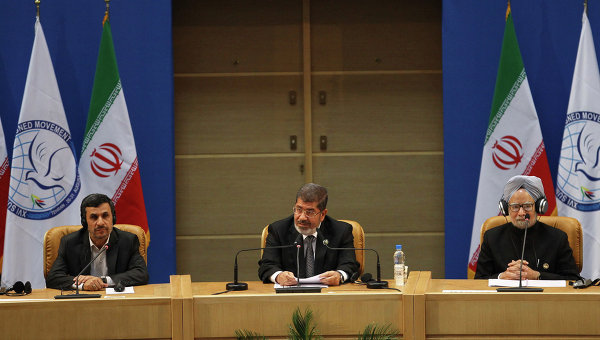CAIRO: Back in mid-April when it was first reported that Egyptian fishermen were taken hostage by Somali pirates, it seemed that their fate was sealed.
Their two fishing boats, the Samara Ahmed and Mumtaz 1, were no Maersk Alabama cargo ship, where only a few days prior, its American seamen fought off pirates who took their captain hostage . but not for long.
Within three days photographs appeared of Captain Richard Philips, uninjured and resting comfortably aboard the USS Boxer after US Navy snipers fatally shot three of the pirates who were holding him in a lifeboat in the Indian Ocean.
At about the same time, and perhaps not so many nautical miles away, our 34 Egyptian fishermen aboard two boats that were working on behalf of a Yemeni businessman, were overpowered by the ubiquitous Somali pirates who initially asked for $11 in ransom.
For months updates from the Island of Las Quray, three days journey from where they were first hijacked in Gulf of Aden (about 56km from Yemeni waters and 130km from Somali waters) trickled in, the ransom gradually shrinking as the fishermen’s families left no stone unturned to involve the Egyptian government in their release.
No surprises. No one lifted a finger. No government official made a single move clearly treating the issue as if the men were already dead and buried. Every few weeks the families would hold a demonstration just to get some attention, but all to no avail. News of the ill-fated fishermen dwindled until all of a sudden four months later, we learnt that the fishermen have escaped and have even taken eight of their Somali captors hostage.
Stories of their terrible ordeal have been filling newspapers since the fishermen received a hero’s welcome as soon as their two rusty ships docked at Attaka in the Gulf of Suez.
Locked up in the refrigeration compartments of the ships with little food and drink, they were slowly getting emaciated. According to an article in The National, despite the fact they were being held captive in waters rich with fish, the pirates prohibited the Egyptians from catching their own meals. If they weren’t planning to shoot them with their automatic weapons, they were clearly ready to let them starve to death.
But then a hero comes along, but his name was not the Egyptian government or special navy snipers, but an ordinary man, one of the boat owners, Hassan Khalil.
Khalil had devised a plan which would eventually bring the men home.
The details of the great escape are nothing short of a Hollywood movie.
According to media reports, Khalil, who owns Mumtaz 1, decided to take matters in his own hands when after careful planning and with the help of a Yemeni government official, he and a Somali official entered the independent Somali province of Puntland by way of Djibouti. From there, they went to Somalia proper where they met with the pirates’ families.
His friendship offensive with the pirates’ clan members paid off. After days of sharing meals and chewing the notorious khat narcotic plant, and sipping tea, he managed to convince one of the pirates’ associates to board his boat, where both his sons were held. By then, the captors had been replaced by a new gang of inexperienced youth with smaller weapons. Once on the boat, he secretly gave his son a satellite phone and within three days the two boats implemented their escape plan, overpowering their captors as they were having lunch.
The extraordinary return of the 34 fishermen is truly a case of Egyptian resolve, ingenuity and heroism, but the questions it raises about the shameful lack of action by the Egyptian government are thoroughly disturbing.
Some initial reports (as expected) attempted to piggy-back on the victory and negotiation skills of one man, making it seem as if he was supported all along by some high-level officials in the Egyptian Intelligence unit (the Mukhabarat) who orchestrated the entire thing. Apart from the fact that this is most likely untrue, even if it was, then it’s nothing to be proud of, considering that it took four months for Egypt’s great minds in government to free the hostages.
Egypt’s Foreign Ministry Spokesman Hossam Zaki even stated Thursday that the ministry played no role in the operation, emphasizing that the ministry was a diplomatic, not an armed force.
The story leaves me with a gaping hole in my heart and one big question: what if Hassan Khalil didn’t have what it takes to save those men? What would have become of their families if they had died, not by some natural disaster out at sea, but because of the negligence of their own government that didn’t bat an eyelid on their behalf? And why are there no Egyptian navy ships patrolling the Gulf of Aden as part of the combined task force set up there to fight piracy off the Somali coast? Isn’t this, first and foremost, a question of national security?
Rania Al Malkyis the Chief Editor of Daily News Egypt.

